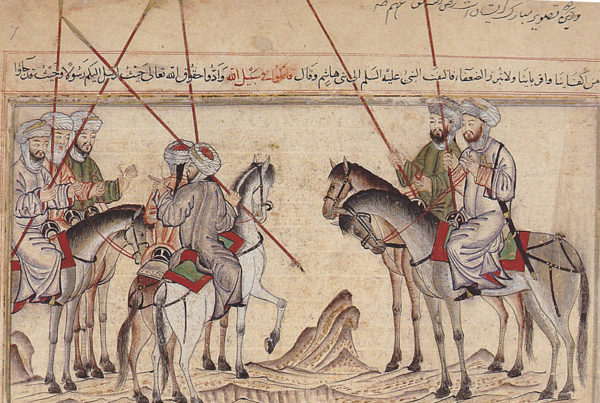 In this scholarly yet highly readable book, Rabbi Jonathan Sacks, former Chief Rabbi of the United Hebrew Congregations of the Commonwealth, analyzes the roots of religious extremism and then suggests a solution.
In this scholarly yet highly readable book, Rabbi Jonathan Sacks, former Chief Rabbi of the United Hebrew Congregations of the Commonwealth, analyzes the roots of religious extremism and then suggests a solution.
In the first of the three parts the book is divided into, Rabbi Sacks explores the natural tendency of humans to form “in” groups (“us”, or those who are like us) and “out” groups (“them”, or those who are not like us, the other). Historically, violence was rooted in the desire to have enough food and to protect the groups with which we identify. As time went on, and internal strife and divisions became problematic, groups sought a scapegoat, someone on whom to heap blame for the divisive issues and thus preserve the group identity. As Sacks points out, in most societies, the scapegoat of choice was the Jews. As non-Christians living in Christian Europe, and as non-Muslims living in Islamic lands, they were blamed for all manner of troubles. Because the problems had nothing to do with the Jews, blaming and persecuting did nothing to solve the problems. The Jews may have been decimated and driven out, but the issues remained.
Because religious extremism is rooted in religious belief, Sacks uses scripture to refute and to argue against such actions. In the second part of the book, he focuses on what he believes to be the root of the dissent and violence that has marked the three Abrahamic faiths: Judaism, Christianity and Islam. Because all three religions are monotheistic, and although they emerged at different times in history, they trace their common origin back to Abraham. Sacks characterizes the violence and hatred as a form of sibling rivalry. Each faith claims to have supplanted the earlier one(s) and to have found favour in the eyes of God. Sacks likens this to the various sibling and familial rivalries present in the Book of Genesis: Sarah and Hagar; Isaac and Ishmael; Jacob and Esau; Rachel and Leah; Joseph and his brothers. By applying the rabbinic method of minutely studying each word in Genesis in the original Hebrew, Sacks identifies and clarifies the subtext that is often missing in commonly accepted readings. The traditional reading of these texts points out the rivalries and the trouble that ensued. However, Sacks goes one step further and shows that in each case, there was a resolution, a reunion of the rivals, and that each came to understand that he or she was indeed loved and valued by God and parents alike.
The message, according to Sacks, is that there is no need for the three Abrahamic religions to war with each other and to claim that they alone are beloved in the eyes of God. Just as a loving parent values and loves each child for what they are, so too God loves each of the faiths that honour Him and have found their way to Him. Therefore, according to Sacks, to kill in the name of the God of life, to wage war in the name of the God of peace, to hate in the name of the God of love, and to practise cruelty in the name of the God of compassion, is a perversion of all that God stands for. This then, posits Sacks, is the solution: to recognize that all three faiths are loved by God and to recognize that although the ‘other’ may look different, speak a different language, and have different customs and ways of worship, we must seek to see God in their faces.
If the book has a flaw, it is that the message while, a logical outcome of the research that precedes it, is not likely to come about anytime soon, if ever. Humanity, especially those who do commit extremist acts in the name of religion, is far too deeply invested in what it believes, to see one another differently. Admirable in its simplicity, but sadly, unrealistic.








